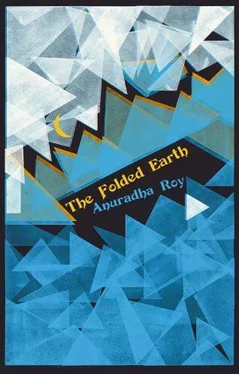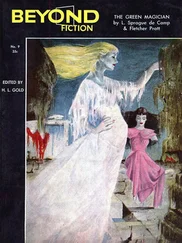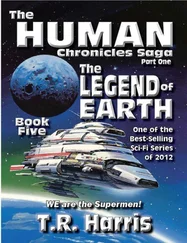How did they do that, Charu said in wonderment, on foot? To which Ama replied, impatient, “That is what was his bijniss. Other people run shops and offices, his work was to measure distances. Just like us: don’t we walk up and down the hills after cows day after day in rain and sun and snow? Can a city person do that?”
“You illiterate woman,” Himmat Singh said. “Walking Ranikhet’s slopes is not like walking through the mountains to China.”
“They could walk for days,” Diwan Sahib said, “Look at Corbett. When he was hunting the Chowgarh tiger, he went without food for about two days, and he was quite comfortable sleeping in the forks of trees.”
“Maybe he thought an underfed man would be less appealing to a hungry tiger,” Veer said. “And a lighter weight on the forks of those trees.”
I thought Diwan Sahib would lose his temper this time. Why was Veer attacking Corbett again? It was childish, the way he tried to antagonise Diwan Sahib. But Diwan Sahib went on as if Veer had not spoken and I relaxed in my shawl again. “Those people were made differently from us,” he said. Nain Singh Rawat had to use exactly 2,000 footsteps per mile, using a rosary with a hundred beads to keep count. Because the Chinese would have executed him if they found him, he travelled dressed as a lama, turning his prayer wheel, in which he had hidden a compass.
For the moment everyone was too busy talking to remember they were in the middle of a slideshow and that there were many more slides to see. Veer was behind me, at the back of the room. If I turned an imperceptible fraction, I could glimpse him outlined against the faint light that came in from the veranda through a murky old glass pane, could sense his eyes upon me in the darkness. I curled deeper into my shawl, my arms holding my shoulders close. He had bought the murukkus because he had heard me saying how much I missed them — I had said it only once, in passing. But he had remembered — and the pickle, which by some miracle was from my father’s factory. I wished the room were empty and his show for me alone.
Veer fiddled with the projector, and a new picture flickered on the wall, turning it grey and white and very cold. My eyes, half shut with daydreaming, snapped open. The slide showed a woman looking up into a camera pointed at her from above. She was bent under the weight of her rucksack and her face was etched with pain. Snow had settled like white trim on the purple of her anorak’s hood. The snow-covered slope she was climbing fell behind her into grey-green water half covered with splintered sheets of ice. Flakes of snow were sprinkled all over the photograph. Icy slopes rose out of the water on the far bank.
Veer was saying, “It was freezing and windy that day. This woman almost slipped and fell into the water just after I took this photograph. She was already feeling ill and the altitude made her worse. It’s over 16,000 feet. People can start bleeding from the nose. Their skin might peel off. They get terrible headaches and frostbite. My ear and missing finger — that’s from frostbite. Frostbite means your blood has frozen — literally.”
Every head in the room swivelled towards Veer as if they had not noticed his deformed ear and missing finger all these days. He changed the slide to turn them back to the wall.
I did not stop Veer to ask him the name of the place. I did not need to. I knew it was Roopkund. That was the water beside which Michael had frozen to his death. I scoured the pictures that snapped onto the wall one by one. A different angle each time: close-ups, long shots. Water and ice, ice and water. Lead-coloured sky. Sheer sides of brown rock and white snow rising from sheets of ice. I examined every inch with frantic concentration in the seconds before one picture made way for another. I had never seen Michael’s dead body. His death felt more a disappearance, still unreal, leaving behind a smoke-like vestige of hope. He was there on those slopes. He had to be. I waited for Michael’s blue and red-hooded jacket to appear. Then he would step away from the wall and into the room.
Long ago, when I was a little girl, I used to believe that radios contained people. No more than a few inches tall, but in every way human, those people were forever imprisoned within the big brown and black radio that stood on my father’s desk. It had a large dial, and round, serrated knobs for switches. When it was turned on, the panel inscribed with frequencies glowed with a yellow light that made the radio look like a little house. If someone took it apart, the singers on Binaca Geet Mala would step out onto the table and talk to me.
I felt icy winds curl around my fingertips, my toes, my face, even my heart. I was trembling. I thought I would cry out in pain and fear. I buried my face in my shawl and stopped my ears under it. My throat had wound itself into a tight knot.
“What is that, is it a waterfall?” someone in the room, who still had a voice, asked. Someone else said, “See how the falling water has frozen!” I inched out of my shawl again. The scene had changed to a herd of white sheep on a meadow enamelled with flowers. Veer muttered “Wrong sequence,” and then there was another stretch of water on the wall, a glassy expanse that reflected the sides of the gorge within which it flowed away into the horizon. At the banks were the frilly white edges of waves frozen in mid-surge. Charu went excitably to the wall to get a closer look and everybody shouted to her to get out of the way as the immense shadow of her head, caught in the projector’s beam, obscured the ice-sheeted river and its frozen waves.
Something snapped into place in my head. Roopkund was not a river. Roopkund was a lake. Lakes did not have waves. Lakes did not flow. I found my voice at last and said to Veer, “This sequence of pictures, it’s not — it’s not Roopkund, is it?”
“You obviously haven’t heard a word of my long-winded commentary. Why do I bother? It’s the Zanskar river. In Kashmir. Why would you think it’s Roopkund? That’s a lake, not a river.” He closed a box with an irritable snap.
The spell was broken; people began to stir. Beena and Mitu scrambled up. They were to leave early the next morning for Varanasi to start a new life at a convent. Diwan Sahib waved them towards him and placed rolls of money in their hands and closed their fists. He patted their heads when they dived downward to touch his feet. “Enough, go now, go,” he said. “Himmat Singh, refill my glass. From the new bottle Veer Sahib brought from Delhi.” The clerk scurried after Himmat into the kitchen in the hope of a stolen drink.
Ama stood up with an abrupt push of her chair. “Travelling is all very well,” she said. “But it’s for people with money to burn and nothing better to do but eat, drink and idle. Why go walking up and down hills for pleasure? We do that every day for work. Charu, come on, we have to go. Puran will have set fire to the cowshed by now.”
* * *
That night, after dinner, Veer collected his torch and stick to walk me to my cottage. At the front door we saw that the light outside the veranda was falling in a shower of tiny golden drops. He went back in to find his umbrella, big enough for two in that kind of rain. My cottage was not far — maybe five hundred yards — but the slope was thick with trees, and leopards sometimes lay in wait for stray dogs or forgotten goats; it was not wise for me to walk down alone so late in the evening, he said.
We walked slower, I knew, than we needed to. By the time we reached my door, the drizzle had stopped and every night scent was deeper and muskier in the dampness. We stood outside, chatting of this and that in voices softer than usual. Apart from a faint television noise from the postman’s house and a pressure cooker that hissed once every other minute, there was hardly a sound. Above our heads the huge ivory trumpets of datura glowed like dimmed lamps in the starlight. We were swathed in their heavy scent, the flowers were so low that they brushed my face. Veer touched one of the flowers, then looked at me and said, “So beautiful.”
Читать дальше












